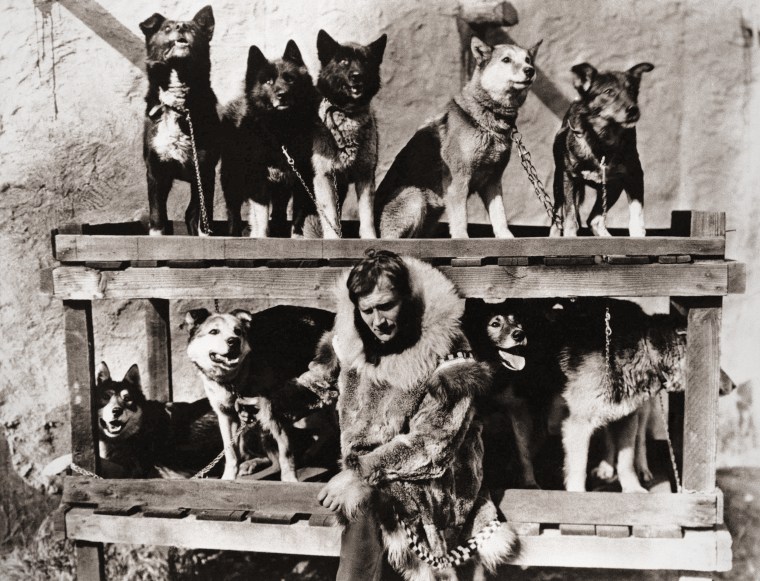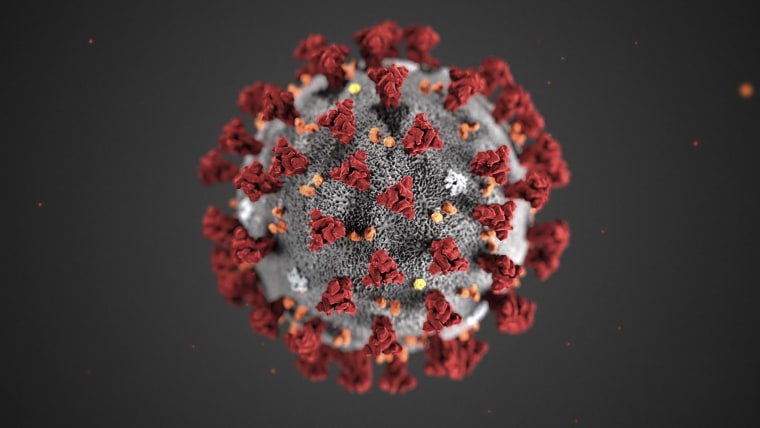A vaccine for the coronavirus is still months away, but a different type of drug — called monoclonal antibodies — may be reason for optimism, at least among scientists.
"Monoclonals offer a great bridge to a vaccine," Gigi Gronvall, a senior scholar at the Johns Hopkins Center for Health Security, said.
Full coverage of the coronavirus outbreak
A vaccine, which would teach the immune system to mount a defense against the coronavirus on its own, is, of course, the ultimate goal. But monoclonal antibodies can provide the immune system an immediate, albeit short-lived, boost to fight off the virus.
It's not unlike the proverb, "Give a man a fish and you feed him for a day; teach a man to fish and you feed him for a lifetime." Monoclonal antibodies are like giving the man a fish; the vaccine is teaching him to fish.
Monoclonal antibodies are currently being developed by several drugmakers, including Regeneron and Eli Lilly. Both companies began clinical trials in early June, and results are expected in the coming weeks.
But what exactly are monoclonal antibodies, and how do they work?
When a person is infected with a germ — a coronavirus, for example — the person's immune system creates proteins called antibodies tailor-made for that specific germ. Armed with those antibodies, the immune system can recognize the enemy in case it shows up again and fight it off.
Antibodies have been used in medicine as far back as the 1890s, when they were demonstrated to cure diphtheria, a deadly bacterial infection. This was before widespread use of antibiotics or a vaccine for diphtheria.
Diphtheria antibodies were even transported 674 miles by dogsled to Nome, Alaska, in 1925 to stop an epidemic of the disease that had killed at least five children. That daring medical response is commemorated annually with the Iditarod dogsled race.

Antibodies are now used to treat cancer, rabies, Ebola and some forms of hepatitis.
Scientists hope that COVID-19 will soon be on that list, thanks to two potential applications.
The first is convalescent plasma, an antibody-rich blood product from people who have recovered from COVID-19. Donated plasma is infused into patients to give an immediate boost to their immune system. There is anecdotal evidence it works.
But convalescent plasma relies on the altruism of blood donors, and blood donations cannot meet the demands of a pandemic. As of Friday afternoon, the U.S. had reported nearly 3.6 million COVID-19 cases, stretching hospital resources nationwide.
"We need drugs that prevent hospitalization," Dr. Anthony Fauci, head of the National Institute of Allergy and Infectious Diseases, said Thursday during an interview with Facebook CEO Mark Zuckerburg. That includes both convalescent plasma and monoclonal antibodies, he added.
Monoclonal antibodies are made in a laboratory, designed to mimic the natural antibodies found in the body.
"Monoclonals are a refinement" of the convalescent plasma process, Gronvall said, "mass producing it as a purified form."
Gronvall said that convalescent plasma contains all of a person's antibodies to a variety of pathogens, not just the coronavirus. But in the lab, scientists can pinpoint specific antibodies and then manufacture them en masse.
In this case, it's antibodies specific to the coronavirus.
These are "the best of the best," Dr. Peter Chin-Hong, an infectious disease specialist at the University of California, San Francisco, said. "When you manufacture it, you have quality control, picking the best and giving the right quantity."
Download the NBC News app for full coverage of the coronavirus outbreak
Such targeted antibodies "stun the virus," Chin-Hong said, adding it could be used as either a preventative, or for those who are already sick with the coronavirus, as a therapeutic in combination with an anti-inflammatory.
While it's unclear how long the immune boost from the monoclonal antibodies would last, infectious disease experts are hopeful.
Chin-Hong described monoclonal antibodies as a "force field" around the coronavirus. "There is a lot of excitement," he said.
Follow NBC HEALTH on Twitter & Facebook.


